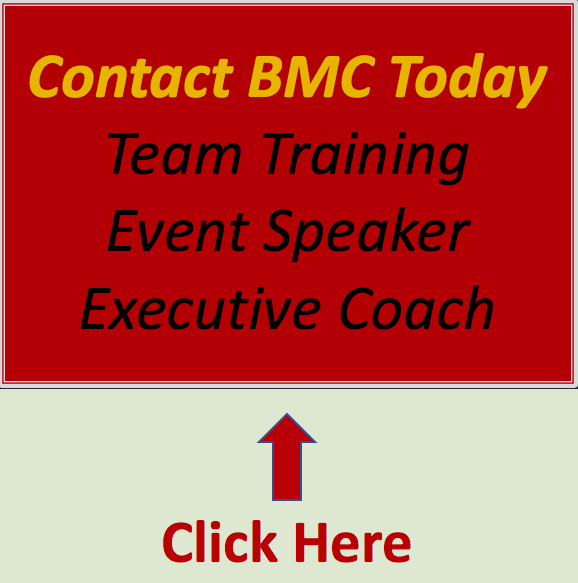Could Fear Of Conflict Be Holding Back Your Team?
/You can have conflict only when you have trust.
When I say, “you can have conflict only when you have trust”, I’m not meaning negative, vindictive, inappropriate, call the lawyers conflict. I mean sharing opposing views, challenging each other’s assumptions, opening your mind and encouraging yourself… and each other to grow conflict.
An essential ingredient of a proud and inclusive workspace is when employees, partners and suppliers don't fear conflict. They know they’re able to freely share each other’s experiences, knowledge and points of view and not worry about being attacked, mocked, ridiculed or worse. It’s exciting and empowering to be part of a team that’s committed to finding the best solution by sharing different ideas and being able to challenge each other’s assumptions, judgements and even beliefs from a place of respect and curiosity. That said, maybe the word ‘conflict’ isn’t the best word to use – it sounds negative; perhaps engagement is a better option. But because conflict is what Patrick Lencioni, founder of the Table Group and author of Five Dysfunctions of a Team calls it, we will stay with conflict for now.
Sharing Opposing Views And Making A Decision Can Get Loud
I think it’s fair to recognize that sharing opposing views and challenging each other’s assumptions can get a little loud (some workspaces, families and cultures embrace loud debate). Personally, I’m better with calm discussion, but if loud is your way then go for it… as long as that’s what everyone expects and they feel safe and respected. I also recommend always being aware of your surroundings for a few reasons. For example:
I urge you to stay aware of socially acceptable boundaries relating to colourful language and/or full-on inappropriate language (read your HR policies). Crossing over the socially acceptable line can cause you trouble even within a trusting relationship. We have to know what’s appropriate and what isn’t.
People won’t share if they feel intimidated by how everyone around them communicates. For example, introverts, new hires, suppliers and meeting guests may not understand what is going on if they are not familiar with your discussion and debate style (this goes for your at-home neighbours and people in the grocery store as well).
Whether we are speaking with someone or writing an email, I believe our primary goal should be sharing whenever we communicate. As a leader, I want to make the distinction that sharing our ideas and experience does not mean you or I have to change each other’s mind or beliefs. What is vital is that all voices are respected and we understand that challenging each other (conflict), is an important step toward collaboration and for us to honour our commitment to find a single clearly defined, measurable choice. When everyone has input, good things happen.
Conflict and Respect Within Difficult Conversations At Work
Hearing and respecting feedback, opinions, and even goals that are different than our own (like not getting a promotion we want) requires Vulnerability Trust. As I shared in a blogpost about trust at work, an example of Vulnerability Trust is when you and I feel safe saying something like “I am sorry, “I don’t know,” or “I made a mistake,” and we know we will still be treated with respect – not embarrassed or attacked.
Within healthy conflict, Vulnerability Trust strengthens our relationships as you and I experience first-hand we will not be attacked or made fool of. Using a workplace example, there is something pretty special when we can listen to our counterparts as they share honest feedback - and know (trust) it is coming from a place of support not malice or revenge. It often takes time to build trust in our team and our ability to have healthy conflict at work; it also requires we watch our triggers and our conscious and unconscious biases… especially concerning challenging news.
The one thing we really want to avoid is holding back constructive feedback because ‘we don’t want to hurt Richards feelings’. If we do hold back, what often happens is that instead of having a discussion we start making excuses, saying things like “It’s just the way Richard is”. If we hang that reputation on Richard without ever confronting him we are likely doing him a disservice that will have long-lasting negative implications on his career. Instead, choose to have a difficult conversation with Richard and respectfully share what you are experiencing / noticing. At that point Richard now has a choice to adjust or not, and what happens next is up to him.
Conclusion
Conflict is an important component within any highly functioning company or relationship. And, as I suggested above it is not meant as a fight or battle… but a commitment for two or more people to respectfully struggle as they discuss, debate, share and learn from each other.
For me, there is nothing quite like having a constructive debate. Using a personal example, in non-Covid times I always enjoyed having a few good friends over and to fall into a lively discussion on some in-the-news topic (usually over a glass or two of scotch). I find this a meaningful reflection of many workspaces because while we are great friends, we all very different in our age, backgrounds and careers. And yes, we have very different and very similar interpretations on things. It is invigorating and I always learn something from each encounter and / or I’m reminded how wonderful it is when someone gives me space – and respect to share my ideas.
So perhaps now that we are at the end of this article, this may be a better time to ask you, “could fear of conflict be holding back your team”?
When we listen we learn, and when we don’t listen we see what we want… not usually what is true or the ideal solution. As my wonderful friend Belinda Jackson recently said to me, “[It’s] always important for a leader to listen and to ask the team if there are ideas they want to share that can make the team stronger. If you want a team, you have to be a team player. Everyone has been in different situations and it is important to share ideas and to be open to hearing them.”
Thank you for reading. I will enjoy hearing your comments, feedback and even examples about conflict at work.
Bruce
About Bruce and Bruce Mayhew Consulting.
Bruce is Corporate Trainer, Keynote Speaker and Executive Coach.
Bruce Mayhew Consulting specializes in customized Email Etiquette Training, Leadership & New Leadership Development, Generational Differences, Time Management Training and other soft skills training solutions in Toronto and across Canada. Bruce is also an Executive Coach to a few select clients.
Bruce is an experienced motivational speaker in Toronto and has inspired audiences across Canada and within the USA and the UK. Bruce works hard to always make sure your training event, conference, retreat, or annual general meeting is a success.
Thank you for stopping by.





